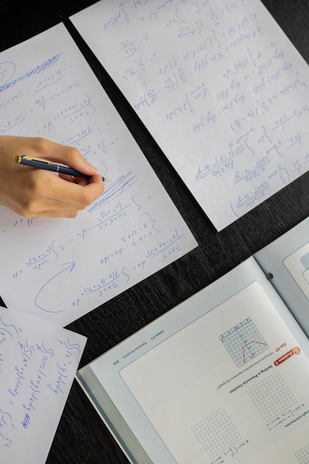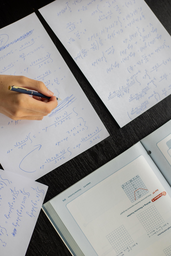It can be so difficult to stay motivated to study, but since we kind of have to as college students, why not make it as bearable as possible? Whenever I am about to settle in for an epic study session, I like to make sure I have every part of this list checked off to help my productivity. Without further adieu, here are five of my personally essential study strategies!
1. Picking the best location and creating a comfortable environment
It is really important to create a good environment for yourself to study in so that you have the motivation to actually want to complete tasks. This could look different for everyone, but I love to go to the library, Glatfelter Hall, or Schmucker Hall, depending on what I am working on. I find it really hard to focus in my dorm because it is distracting to me and associated with relaxation, whereas going to an academic building makes me think, “I am here to be productive.” If I am feeling behind and really need to make some serious progress on assignments or studying, I like to try to make a work session an event so that I am deliberately setting aside a chunk of time to complete things rather than trying to sporadically focus on tiny things. For example, packing snacks, finding a good spot to work, and timing myself with playlists of my favorite music can really calm me, knowing that I am about to destress substantially in, say, a three-hour period. Sure, it is a long time, but seeing the light at the end of the tunnel makes it worth it.
2. Make a checklist
In my opinion, there is nothing more satisfying than checking off a to-do list. I find it really helpful to organize my day via a checklist without making it too stringent to the point where it stresses me out. This semester, I have been really into using Google Keep to make checklists because it has a checkbox feature and is very accessible from my computer and phone. You can also color-code and pin notes to organize them! I like to make lists for my day and title them with some motivational statement, examples including “have a winning Wednesday :)” and “start your week strong!” It may be cheesy, but it makes me happy. I like to write my classes, events, and homework assignments in the order in which they happen to plan my day a little bit.
3. Print and annotate resources
Something I find really helpful when I am overwhelmed by a daunting assignment is to print any documents that may help me so that I have a physical copy of each thing that I need. This could include the rubric, sources, slides with notes, and more. Personally, it overwhelms me to have all of those tabs open on my computer, and I prefer to print them so I can see everything at the same time. It is also nice because I am a big fan of highlighting and annotating to do what I need to do to understand what I am reading better. I am a visual learner, so seeing every piece of information I need, especially with color coding, and having it tangibly in front of me is really important.
4. Try handwriting for memorization
For me, I have found that handwriting is the key to memorizing things. There is something about it that just makes the information stick in my brain better, and I don’t really know how else to explain it. I have really enjoyed using white boards in college, which was something that I had never really done before, in order to recount information that I study. Also, whenever I have a study guide for an exam that is posted online, I find it really useful to print it out and handwrite the answers to it. When I type answers, I tend to zone out and not grasp what I am actually typing. This tip goes hand in hand with the last one, because having a paper copy to read works wonders. It may just be a mindset thing, or even the fact that I just find it easier on the eyes to read. Also, handwriting is an activity in a way, as opposed to just reading, because you have to think about every word with no option of skimming over details.
5. Use the quizlet matching game and test features
I used to be a militant handwritten flashcard person, but to be honest, Quizlet is just easier and less time-consuming, which gives it the upper hand for me. I especially like to use the matching feature because it makes flashcards more fun and really helps to differentiate material quickly; it is especially great for when you have a lot of terms that sound similar. You can also play the matching game as many times as you want since it is a free feature of Quizlet. I also really like the test feature after I have been studying for a while. Unfortunately, it is a premium feature that can only be used once per set, but it is still really helpful. You can customize your test to include every flashcard and have it be true or false, matching, multiple choice, or written answers. I really like to do a variety or pick a style that will most closely match the actual exam or quiz.
Well, that is my list, and I hope that some of these tips were helpful, even though everyone studies in their own unique way. As finals season approaches, remember to be diligent but also to be patient with yourself because you are doing amazing things!



